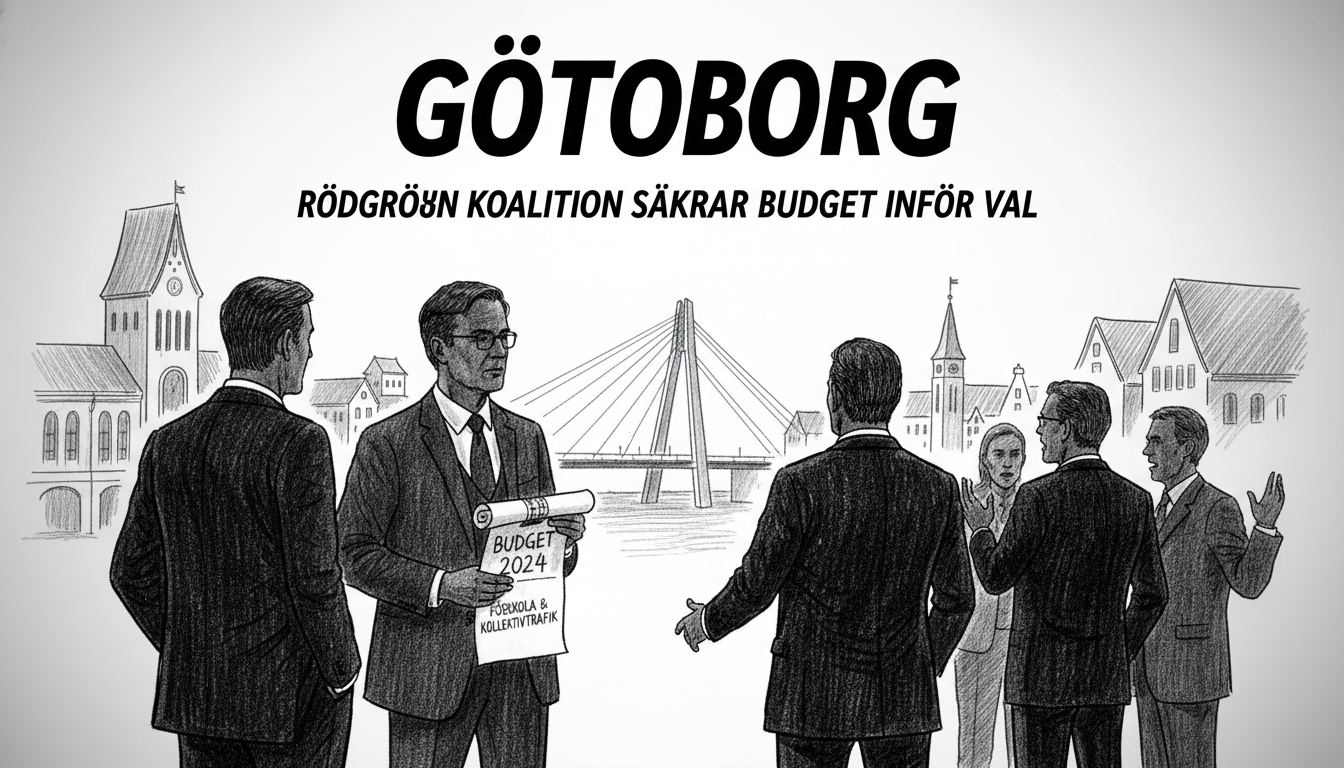Gothenburg's city council has approved the final budget from the ruling Red-Green coalition ahead of upcoming municipal elections. The Social Democrats, Left Party, and Green Party secured passage of their spending plan after a marathon debate session that stretched into Thursday evening. The budget focuses heavily on education and public transportation, two key areas affecting daily life for residents.
The approved budget includes a controversial expansion of preschool access for children of parents on parental leave. It also reduces public transport costs for Gothenburg residents by 140 kronor annually. These measures represent the coalition's priorities before voters head to the polls.
Council Chairman Jonas Attenius expressed satisfaction with the outcome. He stated the budget addresses pressing concerns for citizens facing economic challenges. The reduced public transport costs will provide immediate financial relief to many households, he emphasized.
The debate revealed clear political divisions between the ruling coalition and opposition parties. Opposition groups including the Moderates, Liberals, Christian Democrats, and Democrats had proposed their own budget featuring tax cuts and cancellation of what they termed "left-wing projects."
Tempers flared during discussions, with opposition representative Martin Wannholt accusing Attenius of employing "Trump-like tactics" during budget criticisms. Attenius dismissed these claims as personal attacks, maintaining he simply questioned the financial viability of opposition proposals.
This budget approval process highlights Sweden's distinctive municipal governance structure where local governments control significant policy areas including education, transportation, and social services. Gothenburg's budget decisions directly impact Scandinavia's second-largest city and its approximately 600,000 residents.
The heated exchanges reflect broader national political tensions as Sweden approaches election season. Municipal budgets often serve as testing grounds for party platforms and governing philosophies. The Red-Green coalition's emphasis on welfare services and public transportation subsidies contrasts sharply with opposition calls for tax reductions and spending cuts.
Gothenburg's budget approval follows established Nordic municipal procedures where coalition governments must balance competing priorities within fiscal constraints. The city's decision to prioritize public transportation costs aligns with broader Scandinavian urban planning principles that encourage sustainable mobility options.
What practical impact will these budget decisions have on Gothenburg residents? The reduced public transport fees take effect next year, while expanded preschool access begins implementation immediately. These measures could influence voter perceptions as municipal elections approach.
The budget's passage represents a political victory for the ruling coalition, but governing parties now face the challenge of implementing these policies effectively. Their performance could significantly impact election outcomes in Sweden's important western region.

